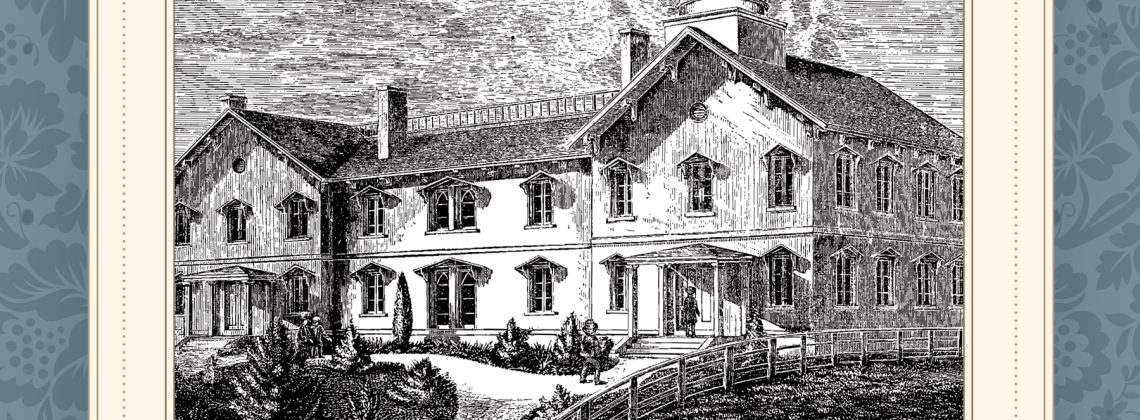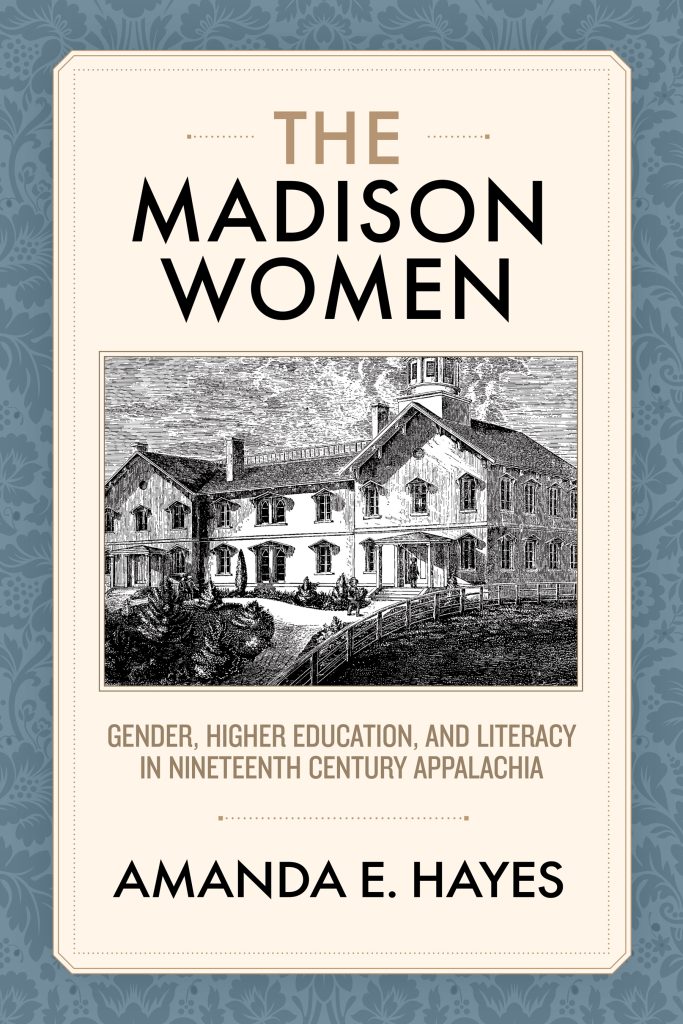

Amanda E. Hayes is Associate Professor of English at Kent State University Tuscarawas. This interview is based on her new book, The Madison Women: Gender, Higher Education, and Literacy in Nineteenth-Century Appalachia (West Virginia University Press, 2024).
JF: What led you to write The Madison Women?
AH: I didn’t initially intend this to be a book. I’d been surprised to learn that there was once a college in the small, rural community I grew up in, and even more fascinated once I learned it admitted women when very few colleges in the United States did. Madison College was long gone by the time I was born; not even the building remained. I did some digging out of purely personal interest, and I found an 1854 college catalogue that discussed the curriculum and named the students attending, nearly half of whom were women. From there, I started finding more and more things that contradicted the stereotypes I’d always heard about Appalachia: not only did we have a plethora of colleges in the nineteenth- and early twentieth-centuries, we had both men and women flocking to them. We were a region with a deeper investment in education than we’ve ever been given credit for. I just kept talking about what I was learning with the people around me, until my colleague Dr. Nicole Willey said, “I’ve got bad news for you: I think you need to write a book.”
JF: In 2 sentences, what is the argument of The Madison Women?
AH: Far from being an educational backwater, nineteenth-century Appalachia valued higher education for both men and women. For women in particular, the literacy skills they gained helped them play important roles in their communities and in national issues of their time.
JF: Why do we need to read The Madison Women?
AH: I hope this book helps readers reconsider the stereotypes of Appalachia as an anti-intellectual, hyper-patriarchal region. I also hope that it illuminates something about how knowledge and influence are passed down through women’s experiences and stories in ways that are felt but not necessarily recorded. In researching the women who attended Madison College, I realized that very little of their own writing survived. However, census data, obituaries, newspaper articles, and even gravestones showed me that they not only valued their education, they passed that value to their daughters, granddaughters, and nieces. This tells us something about the power of women as authorities and role models in Appalachian cultures that I don’t often see reflected in popular culture’s depictions of the region.
JF: Why and when did you become an American historian?
AH: This is a complicated question. Professionally, my field is rhetoric and composition, which by its nature is interdisciplinary—I’m interested in histories of literacy, writing, and the forces shaping how these are taught and who has access. Personally, I think that many of us who grow up in Appalachia are raised to be historians, in the sense that we carry stories of ancestors and places that we’re taught from the moment we learn to speak. I was taught that these histories are part of what makes us who we are. What struck me so much about Madison College is that it forced me to re-evaluate my belief that I knew my region’s history, something that I’d always taken for granted. The fact that Madison and its many sister colleges throughout Appalachia have been largely forgotten in the regional narrative is also important to understanding who we are, and I think that remembering them is important to knowing who we want to be in the future.
JF: What is your next project?
AH: I’m currently co-editing a collection of essays by other Appalachian writers discussing sustainability in the region. This has a historical angle, because many of us see understanding our local history as an essential component of cultural and environmental sustainability. While Appalachia has traditionally been a region of environmental degradation (courtesy of extraction industries), it is also a place where culture teaches many of us to value the land and our ancestral linkages with it. These are tensions that are well worth exploring.
JF: Thanks, Amanda!